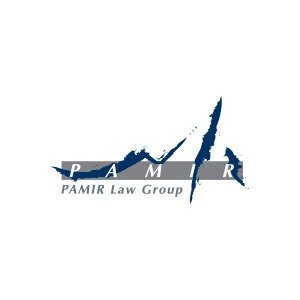Best Renewable & Alternative Energy Lawyers in Taiwan
Share your needs with us, get contacted by law firms.
Free. Takes 2 min.
Or refine your search by selecting a city:
List of the best lawyers in Taiwan
About Renewable & Alternative Energy Law in Taiwan
Taiwan has made significant progress in developing its renewable and alternative energy sector in recent years. In response to environmental concerns, energy security issues, and a national goal to phase out nuclear power, Taiwan has implemented a robust legal framework to promote the adoption of renewable energy sources. These include solar, wind, geothermal, biomass, and small hydroelectric power. The government's energy transition policies focus on increasing the share of renewables in the overall energy mix, attracting foreign and domestic investment, and ensuring sustainable development practices. Regulations governing this sector are dynamic, reflecting Taiwan's evolving commitment to green energy and a low-carbon future.
Why You May Need a Lawyer
Engaging in the renewable and alternative energy sector in Taiwan often involves complex regulatory procedures, investment agreements, and compliance requirements. Legal issues can arise in many contexts, such as acquiring permits for constructing solar or wind farms, negotiating power purchase agreements, understanding feed-in-tariff incentives, handling intellectual property for innovative technologies, and dealing with cross-border transactions or joint ventures. Additionally, disputes with partners, contractors, or government authorities may require legal intervention. A lawyer specializing in renewable and alternative energy can help navigate these situations, ensuring your projects comply with local laws and protecting your interests in a fast-changing regulatory environment.
Local Laws Overview
The primary legislation regulating renewable and alternative energy in Taiwan is the Renewable Energy Development Act (REDA). This law establishes the framework for promoting green energy production, providing financial incentives, and supporting infrastructure development. Key aspects include feed-in-tariff schemes, renewable capacity targets, simplified application procedures, and grid connection priorities for renewable projects. Additional regulations cover environmental assessments, land use considerations, and equipment standards. The Electricity Act and Environmental Impact Assessment Act also play important roles, especially regarding the integration of renewable electricity into the national grid and approvals for large-scale projects.
Frequently Asked Questions
What types of renewable energy are promoted in Taiwan?
Taiwan primarily promotes solar photovoltaic, onshore and offshore wind, biomass, small hydroelectric, and geothermal energy sources.
What is the feed-in-tariff (FIT) program and how does it work?
The FIT program guarantees renewable energy producers a fixed purchase price for the electricity they generate, incentivizing investment and long-term project planning.
Do foreign companies have restrictions on investing in Taiwanese renewable projects?
Generally, foreign investors are welcomed in Taiwan's renewable sector, but they must comply with local regulations concerning corporate structure, land acquisition, and permit processes.
What permits are required to start a renewable energy project?
Projects typically need approvals related to land use, construction, environmental impact, grid connection, and power purchase agreements. The requirements can vary depending on the project size and location.
Are environmental impact assessments mandatory?
Yes, many types of renewable energy projects, especially large-scale ones, must undergo environmental impact assessments as part of the permitting process.
Can individuals install rooftop solar panels on their homes or businesses?
Yes, residential and commercial entities can install solar panels, but they must obtain necessary building, safety, and grid connection permits.
What incentives are available for renewable energy developers?
Incentives include feed-in-tariff schemes, tax benefits, low-interest loans, and priority grid connections for qualifying projects.
How does Taiwan plan to phase out nuclear power?
Taiwan's energy policy is to gradually decommission nuclear power plants, replacing their capacity with renewables and natural gas, supported by clear regulatory timetables.
What are the challenges developers face in the renewable energy sector?
Common challenges include navigating a complex permitting process, securing land rights, integrating with the power grid, and managing community or environmental concerns.
How can a lawyer assist with renewable energy projects?
A lawyer provides guidance on compliance, prepares and reviews contracts, assists with disputes, facilitates permits, and ensures adherence to regulatory and environmental standards.
Additional Resources
If you seek more information or support related to renewable and alternative energy in Taiwan, these organizations and government bodies may be helpful:
- Bureau of Energy, Ministry of Economic Affairs - primary regulator for energy policy and incentives
- Taiwan Power Company (Taipower) - manages grid connection and power purchase procedures
- Industrial Technology Research Institute (ITRI) - offers technical and policy research
- Environmental Protection Administration (EPA) - responsible for environmental assessments and regulations
- Taiwan Renewable Energy Alliance (TRENA) - an industry association supporting the renewable energy sector
Next Steps
If you need legal assistance with a renewable or alternative energy matter in Taiwan, consider the following steps:
- Identify the specific nature of your legal need, such as project development, compliance, investment, or dispute resolution.
- Gather any documents or details relevant to your case, including contracts, permits, or correspondence with authorities.
- Consult with a qualified local lawyer who specializes in renewable and alternative energy law. Look for professionals with experience in regulatory matters, project finance, and negotiations in this sector.
- Prepare a list of questions or concerns to address during your consultation.
- Follow your lawyer’s advice regarding compliance, applications, and ongoing legal obligations to ensure project success and avoid penalties.
With the right legal support, you can confidently participate in Taiwan’s dynamic renewable energy sector and contribute to a sustainable future.
Lawzana helps you find the best lawyers and law firms in Taiwan through a curated and pre-screened list of qualified legal professionals. Our platform offers rankings and detailed profiles of attorneys and law firms, allowing you to compare based on practice areas, including Renewable & Alternative Energy, experience, and client feedback.
Each profile includes a description of the firm's areas of practice, client reviews, team members and partners, year of establishment, spoken languages, office locations, contact information, social media presence, and any published articles or resources. Most firms on our platform speak English and are experienced in both local and international legal matters.
Get a quote from top-rated law firms in Taiwan — quickly, securely, and without unnecessary hassle.
Disclaimer:
The information provided on this page is for general informational purposes only and does not constitute legal advice. While we strive to ensure the accuracy and relevance of the content, legal information may change over time, and interpretations of the law can vary. You should always consult with a qualified legal professional for advice specific to your situation.
We disclaim all liability for actions taken or not taken based on the content of this page. If you believe any information is incorrect or outdated, please contact us, and we will review and update it where appropriate.
Browse renewable & alternative energy law firms by city in Taiwan
Refine your search by selecting a city.
















